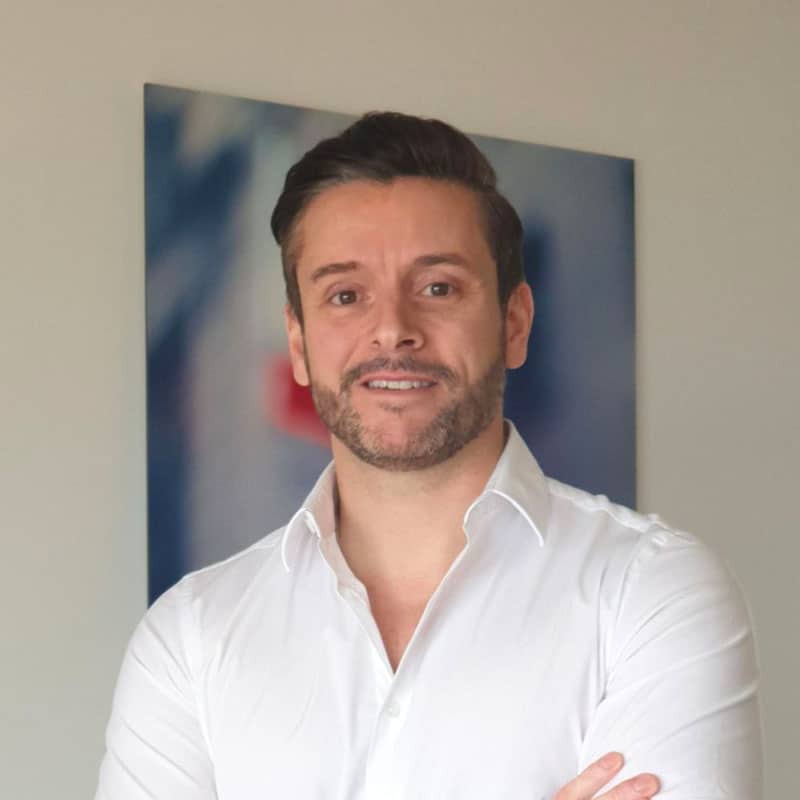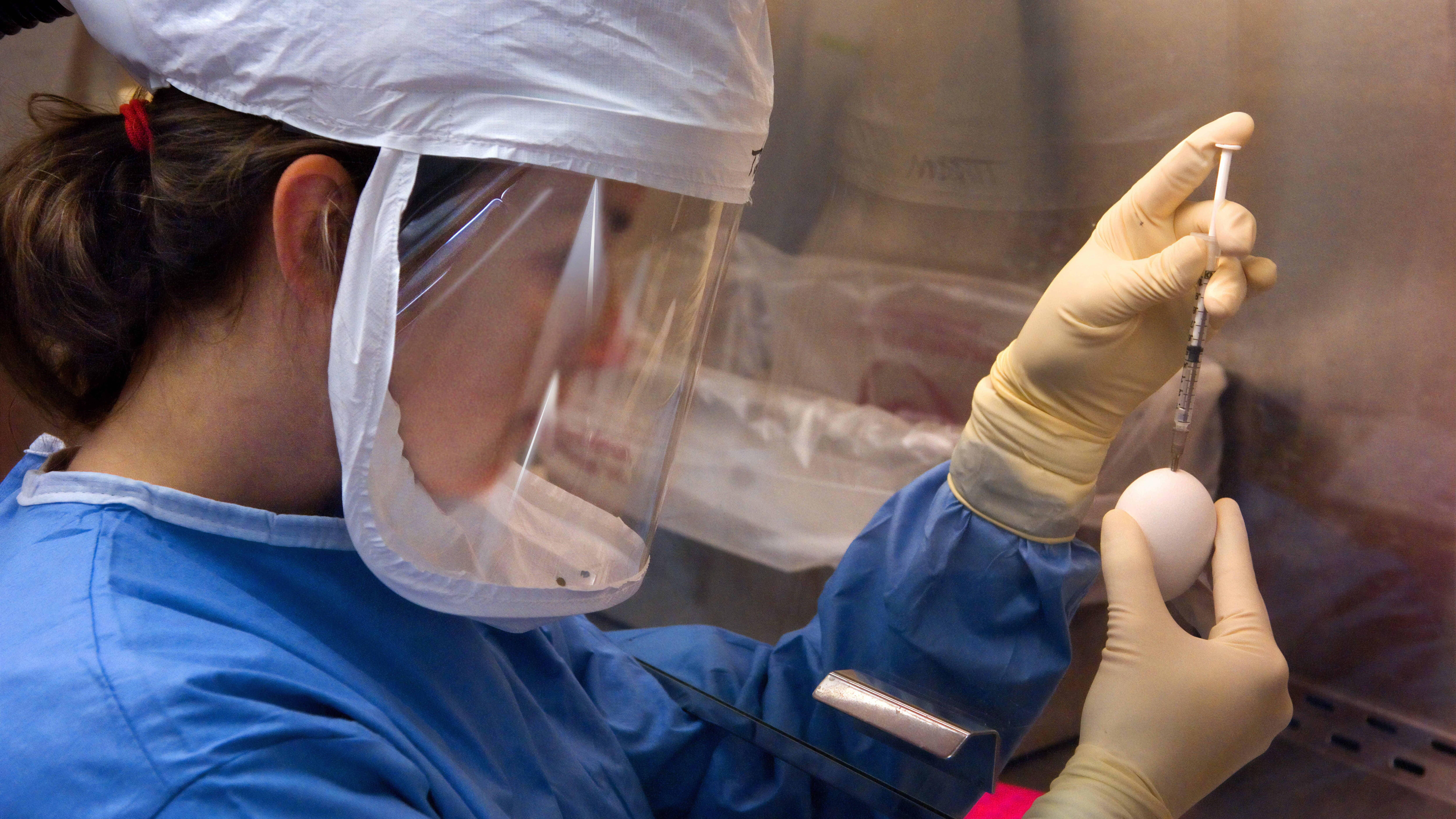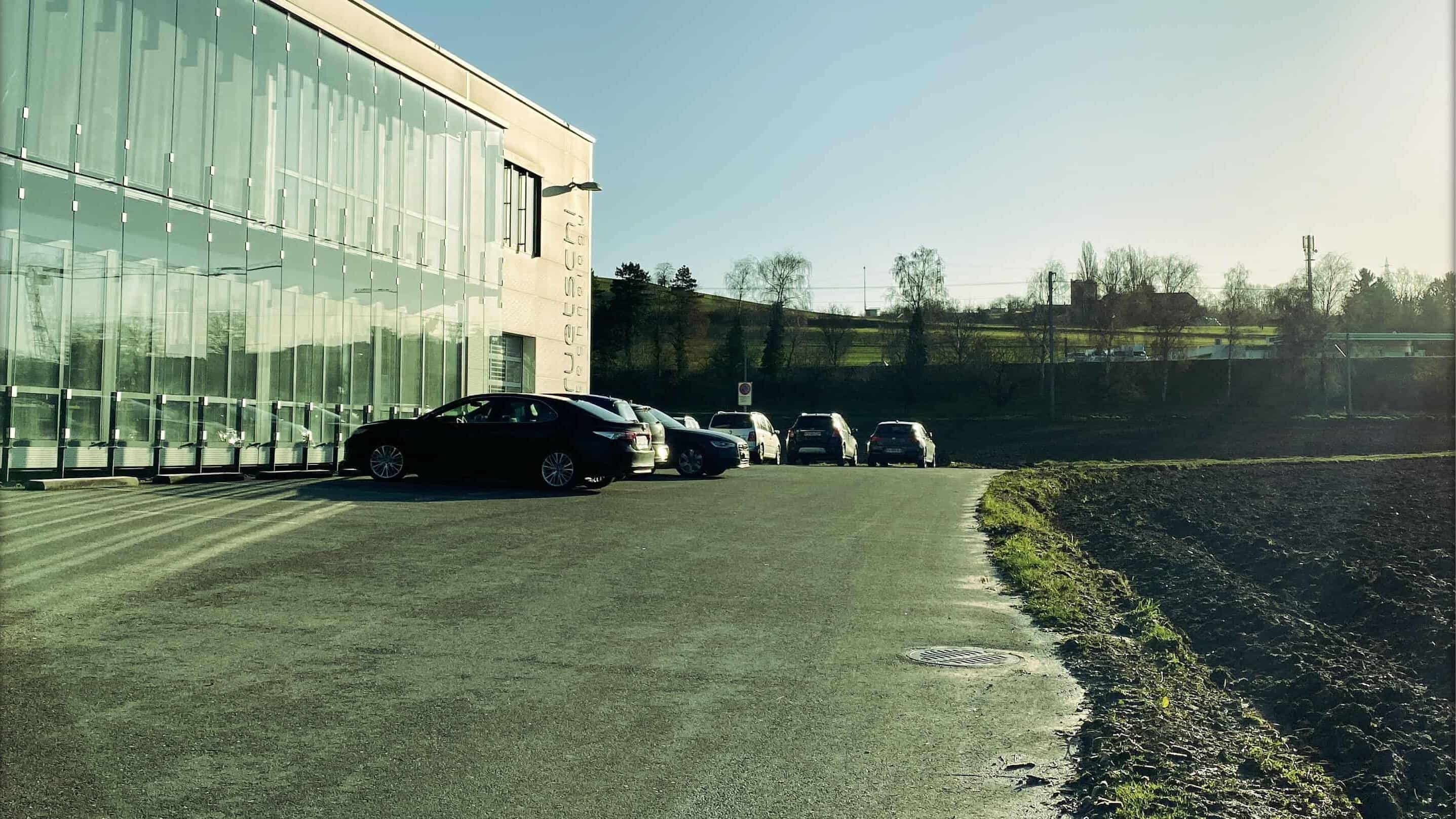The largest segment of spine surgery, thoracolumbar fixation, hasn’t seen a lot of true disruptive innovation. With startup Neo Medical, Vincent Lefauconnier is changing how spine surgeries are done. In this interview, he explains why less is more in the operating room.

Co-founder and CEO, Neo Medical
Vincent Lefauconnier co-founded Neo Medical in 2016 together with Jonas Larsson. He has more than 20 years of experience in the medtech industry. Verve Ventures first invested in Neo Medical in 2020. By now, Neo Medical’s Swiss-made toolset has been used in around 15’000 spine surgeries.
You co-founded Neo Medical. What were you doing before that?
My background is in Biology. In my early 20s, I joined Medtronic in France, where I immediately started working in spinal surgery. From there, I moved on to Stryker, which is what brought me to Switzerland. In 2008, I joined Vexim, a start-up focusing on the minimal invasive treatment of vertebral facture, as chief commercial officer. I helped develop the whole technology, the sales and market team, and clinical strategy until the company’s IPO. The company was then acquired by Stryker in 2017. Jonas Larsson, my partner and co-founder, whom I met at Stryker, had been working on Neo since 2012.
“Neo Medical is the conclusion of the twenty years of frustration I had in the spine world.”
What led you and Jonas Larsson to establish Neo Medical?
Neo Medical is the conclusion of the twenty years of frustration I had in the spine world. Twenty-one years ago, when I started my career, it was a market worth USD 2 billion. Now it is around USD 14-15 billion – the largest market in orthopaedics. However, if you look at patient outcomes, it is the only surgical field in orthopaedics that has seen very small improvement in patient outcomes in the past forty years. To understand why this was happening, we took a blank-slate approach, which led us to the Neo project. So again: it was twenty years of frustration.
How has your solution simplified spinal surgery?
We set out to create the perfect hardware and software solutions for surgeons working in a unique ecosystem of technologies revolutionizing the way we do spine surgery. We found that not only the instruments, but how they are used during surgery, affect the tension and mechanical stress on the patient’s spine. In response, we created implants, instruments and a surgical technique that address these specific points. We have replaced the traditional set of over 400 implants with just 26 universal implants. Similarly, we have rationalised the set of instruments without limiting surgeons’ options. Our set of five modular instruments makes surgery much faster, streamlined, and effective – and much more reproducible. This combination allows surgeons to work much more efficiently.
What does this mean in terms of time and money saved?
A study in Germany shows that our technology reduces the time in surgery by 29%, compared to existing technologies. This is a huge deal, not only for the hospital, but also for the patients. All of this amounts to a cost reduction of EUR 1450 per case, which is a massive gain for the hospital or clinic.
How does this benefit patients, too?
Our solution is applied to different types of surgeries: degenerative surgery, usually linked to aging, which accounts for around 80% of operations in our field. The pain is not life-threatening, but it can be debilitating; it means that people cannot work. Usually, there is a waiting list, so most people have to wait for surgery. There is also surgery for trauma or deformities, where emergency surgery is extremely important, and for tumours, which need to be treated quickly; otherwise, they become life-threatening. Our product is used in a full range of cases, where hospitals’ ability to offer surgery much faster is key for the patients, too.
What is the environmental impact of the switch to single-use screws and instruments with your product?
From the start, this was a very important subject for us. According to a study that we conducted right at the beginning, which was published in a major journal in our field, using our technology reduces the environmental footprint by 75%, compared to what was already being done. The main reason is that hospitals use sterilisation methods that are extremely polluting; they have to wash all the instruments carefully with detergent, decontaminate them with products that are very bad for the environment and, lastly, sterilise them using autoclaves – a kind of oven that uses high temperature and pressure – which consumes a lot of energy. The combination of these processes means that Neo is a huge step forward, including in environmental terms.
What sets you apart from your competitors?
With our hardware, we provide a product that is easy to use and applies to everyone. It is a frontline technology: with only a minimal number of universal implants and smart instrumentation, we can cover every type of indication without the footprint of existing solutions – in terms of the environmental impact, but also space in the operating room. Moreover, clinical results show that using our technology is also improving specific areas relating to patient outcomes. One of these is implant failure, a situation in which an implant breaks or is loosened in the bone because of the mechanical tension that is usually created during surgery. Our technology reduces this mechanical stress on the patient’s spine. As a new study shows, this reduces the risk of screws loosening – the biggest reason for revision surgeries – three- to fourfold. This gives Neo Medical a huge advantage over the competition. Time, cost, the environment, and patient outcomes – in all these areas, we surpass the technology already on the market.
“Our technology reduces mechanical stress on the patient’s spine.”
How do you plan to keep growing in the future?
We are a very rapidly growing company, considering that we went through the biggest struggle in healthcare caused by the COVID-19 pandemic, and are aiming to grow even faster. We want to increase our focus on our current strategic markets. We are already present in Europe, in big markets such as Germany, Switzerland, France and Spain, and will establish ourselves in the UK and Italy in the coming months. We are also present in the US and there is a huge push at the company to focus investment on growing there through the launch of our new platform, Neo Universal. This is a new generation of our hardware technology that goes with our augmented reality platform, ADVISE. All of this works together in a closed ecosystem of technologies that is focused on improving patient outcomes.
What makes the US such an attractive market for you?
It is one of those markets that is really attractive pricewise but, more than that, it is the specificity of the US market that is attractive. The US market is large and well organised, with very well-established surgeons who are leaders in this kind of surgery. For us, developing our technology and techniques there is an obvious step forward.
In what way does ADVISE complement your existing solutions?
For us, ADVISE is the next step, not only for Neo, but in the medical device industry. We believe that this technology will be transformative, truly benefiting the patients, surgeons and hospitals. We have already reached a fantastic level of technology in the hardware and are adding a layer of software that can make our implants and instruments even smarter. I believe that these technologies will transform how patients are treated.
How does the launch of ADVISE support Neo Medical’s growth ambitions?
The launch of this new technology, combined with our focus on these markets and the continuous development of our hardware and our technological platform, is key to the future growth of the company. We have a very ambitious plan when it comes to the technological part, which is going to drive the company’s growth in the coming years.
How does the app you created support the uptake of ADVISE by surgeons?
It is a technology that they can use with something that they already have in their pocket: an iPhone or iPad. They do not need to buy equipment requiring millions of dollars in investments; they only have to take their iPhone or iPad and download the app, which is then ready to use. We are offering a readily available solution that can benefit patients not in five or ten years’ time, but right now.
How does what Neo Medical is doing fit the wider trend towards optimization in healthcare?
We are using technology to change the treatment of patients for the better and improve the life of healthcare workers. We are cutting massive costs and have a much lower environmental footprint than anything currently on the market. We have reduced the time spent on surgery, made it more precise, and improved patient outcomes. Our holistic approach is helping improve every single area that is currently important in healthcare.
What is the potential for your products in our ageing societies?
Spine surgery is driven by the ageing of the population, but also by all the pathologies and comorbidities that affect people. Other comorbidities, such as obesity, are a driver of it, too. We are right in the middle of the push to treat the problems associated with these trends in our societies.
Finally, what is your priority for the year ahead?
Our priority will be to expand in our current market, plus some new ones, our big focus on the US, and the technology driving the development of our ADVISE platform. These three areas will be key for us in the coming years.
Written by
WITH US, YOU CANCO-INVEST IN DEEP TECH STARTUPS

Verve's investor network
With annual investments of EUR 60-70 mio, we belong to the top 10% most active startup investors in Europe. We therefore get you into competitive financing rounds alongside other world-class venture capital funds.
We empower you to build your individual portfolio.
More News
23.09.2021
“When the stars align, you can’t wait”
In this interview, entrepreneur and investor Gaëtan Marti recounts how difficult it can be to find financing for a startup, how he bootstrapped Atracsys and eventually, despite different plans, sold it to a big MedTech company.
22.09.2020
“Investments in life sciences have held up very well”
Verve Ventures connects startups with advisors that know their sector inside out. Nigel Barnes from WG Partners in London is a veteran in the life sciences field. In this interview, he shares his insights about what matters when fundraising and preparing an exit.
06.01.2020
From watchmaking to spine fusion in one generation
Cutting-edge medical technology relies on production partners with very specific skills. A visit to Ruetschi Technology, where Neo Medical’s products for spine surgery are manufactured, is a tale of how a Swiss family firm found a new future for its precision manufacturing skills.
Startups,Innovation andVenture Capital
Sign up to receive our weekly newsletter and learn about investing in technologies that are changing the world.




